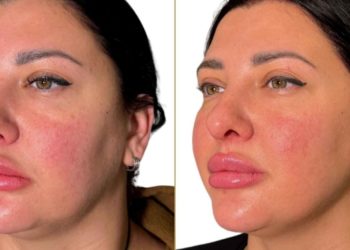Going through an addiction recovery phase can be incredibly tough. Not only do you feel the urge to relapse, but there’s also the added burden of managing withdrawal symptoms.
According to statistics, nearly 64 million people suffer from some type of substance abuse disorder, out of which only 1 in 11 is undergoing proper treatment.
To ensure that you’re on the right path toward addiction recovery, you first need to understand why the addiction has been caused and what recovery looks like.
The Transtheoretical Model
The five stages of addiction recovery can be summarized using the transtheoretical model, also known as TTM or the stages of change.
TTM was developed primarily by James Prochaska and Carlo Di Clemente of the University of Rhode Island. The model is based on different theories of psychotherapy and was first used to encourage people to quit smoking in 1983.
In 1992, its use was expanded to treat patients undergoing different kinds of mental and behavioral therapy.
Prochaska, Clemente, and Norcross noted specific patterns that occurred in people going through different stages of the recovery program.
It’s important to realize that the stages of addiction recovery aren’t always linear and that different people take different amounts of time to get cured.
- Stage One: Pre-Contemplation
This is the first stage of addiction recovery, where the person might not even be aware that they need professional help to cure their addiction. Most people are often in denial, and they want to refuse any kind of treatment.
In this stage, patients are often unaware of the consequences that may have already occurred due to their addiction.
The pre-contemplation stage can happen irrespective of what kind of addiction a patient is suffering from.
Whether it’s alcohol addiction or dependency on illegally prescribed medicines, the pre-contemplation stage is when the person wants to focus on how their addiction has made their lives better instead of understanding the negative consequences.
At this point, an intervention service might be able to help them.
- Stage Two: Contemplation
After the pre-contemplation stage, the patient moves on to the second stage, known as the contemplation stage.
Here, the patient is ready to contemplate or bring about a positive change in their addiction habits. However, even if they’ve understood that they need to change, they might not be willing to take any step right away.
Unlike the first stage of addiction recovery, the patient here understands the problems associated with addiction and wishes to change.
Another problem here is that they’re also aware of the pleasure they get from the substances they use, such as alcohol, drugs, or addictive medication.
This is an important stage for the patient’s family members because they might guide him into starting a recovery treatment soon enough.
- Stage Three: Preparation
The second stage, or preparation, is when the patient contemplates the benefits of starting a recovery program.
In the third stage, the patient actually takes steps to lead a healthier life. Here, they show the first signs of moving forward with change.
The patient has already built a sense of urgency and has understood that the negative consequences of addiction far outweigh the positive ones.
They might start with small steps, such as joining the gym or practicing yoga and meditation. Some patients might also seek professional help by talking to a reliable professional counselor without joining the center themselves.
It’s normal for people here to go for a day or two without turning to harmful substances, but they might jump right back at any time.
- Stage Four: Action
During the fourth stage of addiction recovery, the person has already figured out that they need professional help to overcome their addiction issues. They might have seriously considered checking into a rehab center or attending support group sessions.
This step requires quite a lot of mental courage because the person might not want to give up the pleasure and happiness they get while taking substances.
Professionals at a mental rehabilitation center will help them understand why they started taking alcohol or drugs in the first place, along with a personalized program for getting better.
The patient will be encouraged to try out new strategies, such as self-care and self-understanding. This stage isn’t just about stopping the destructive behavior but also major changes in their lifestyle.
- Stage Five: Maintenance
The final stage of the recovery program is known as the maintenance phase, which is characterized by a steady refusal to take harmful substances and continuing the treatment program.
The patient and their caregivers need to understand that getting to this stage can be very difficult and that there are no quick fixes to reach the maintenance stage. If you wish to successfully reach this phase, you need to continue resisting the temptation to relapse. Successfully navigating this phase can require ongoing support and resources provided through comprehensive drug treatment new jersey programs (or anywhere else) that tend to focus on relapse prevention and long-term wellness.
Here, the patient keeps working hard to stay clean and keep a safe distance from any triggers that might urge them to start indulging in
alcohol or drugs.The fifth stage can last anywhere from a few months to five years, depending on the severity of the addiction.
The Importance of Aftercare
Aftercare refers to continuing treatment and medication from the rehab even after seeking professional help. For anyone suffering from addiction, receiving proper aftercare is essential to prevent any further triggers.
Even after the initial treatment regime ends or the patient is checked out of the rehab facility, the patient needs to stay true to their promise and stay away from past destructive habits.
Typical aftercare regimes consist of regularly attending support group programs, outpatient therapy sessions, and connecting with loved ones.
If you have experienced strained relationships with people close to you due to your addiction, it’s time to mend things. The main goal of aftercare is to apply and maintain the positive changes that previous treatment programs have made.
Conclusion
If you or someone close to you needs addiction recovery programs, it’s best to seek a therapy session with an addiction recovery specialist. The counselor will outline a treatment program or even recommend rehab centers. Being aware of these five stages of addiction recovery will aid in the process and ensure a swift recovery!


![7 Best POS Software in the UK [2026 Edition]](https://todaynews.co.uk/wp-content/uploads/2026/02/7-Best-POS-Software-in-the-UK-2026-Edition-360x180.png)








































































